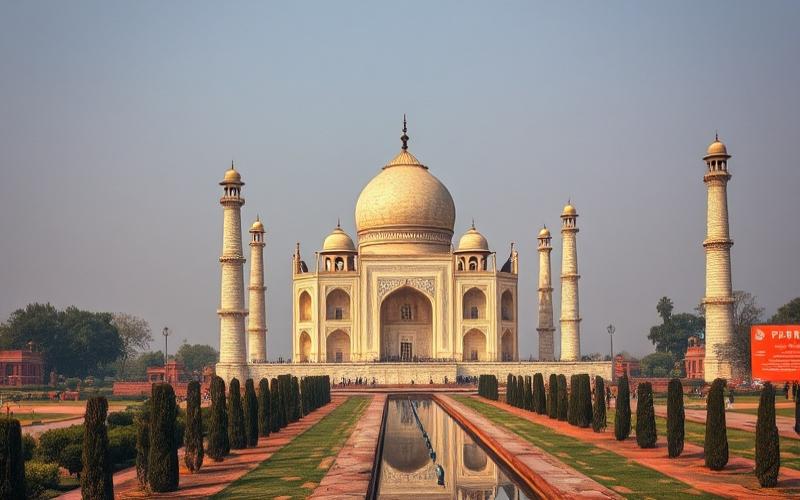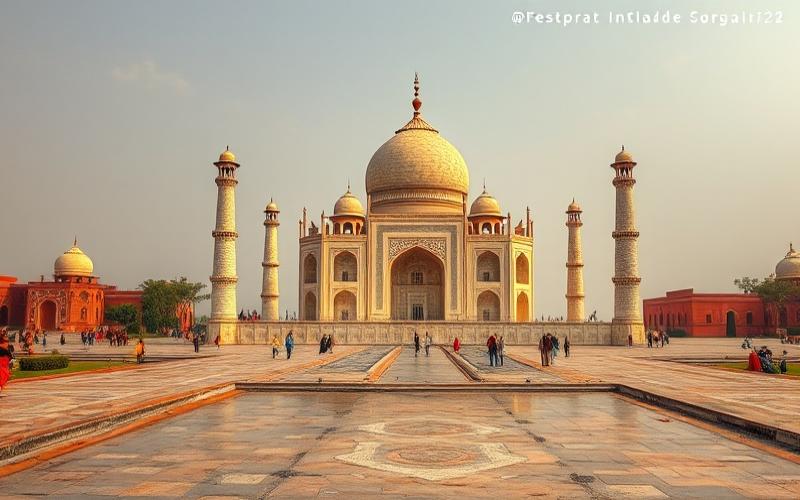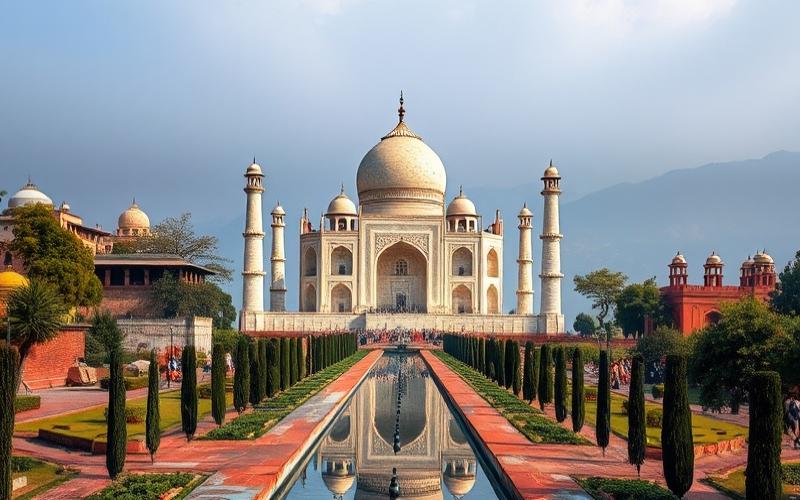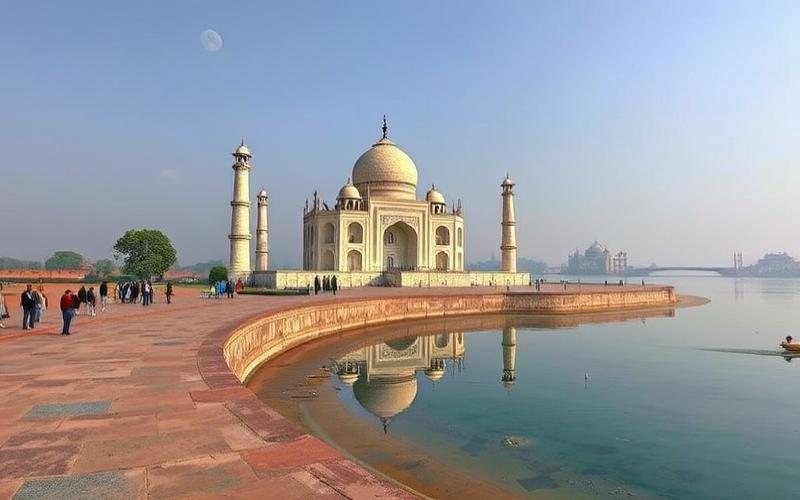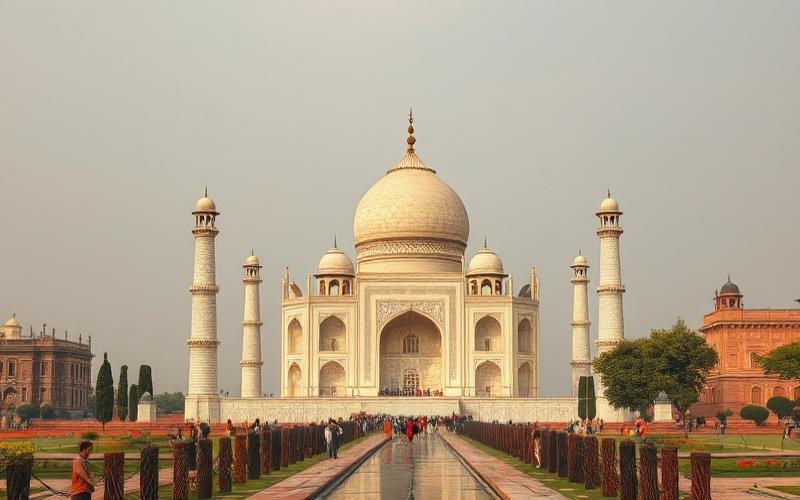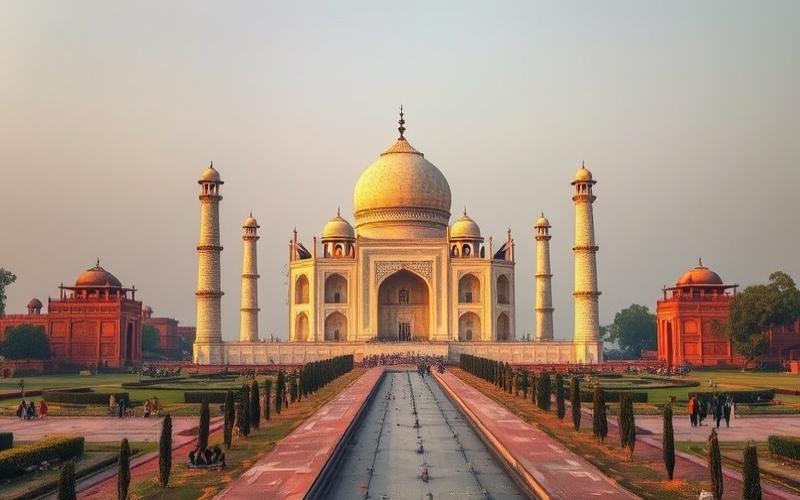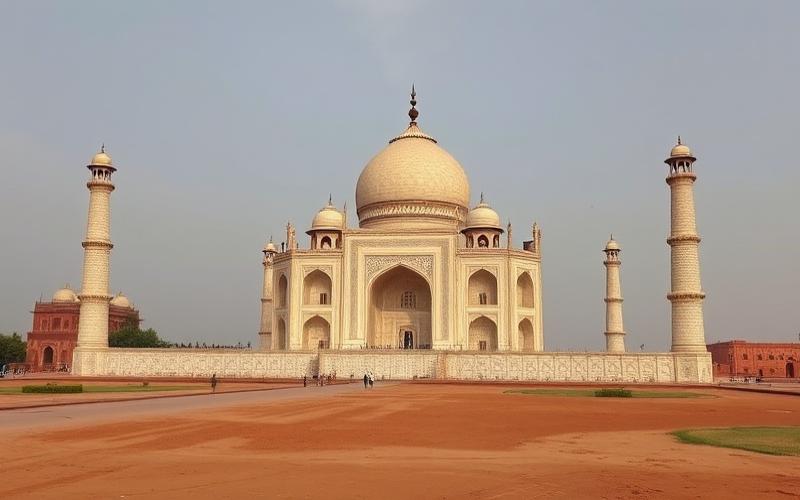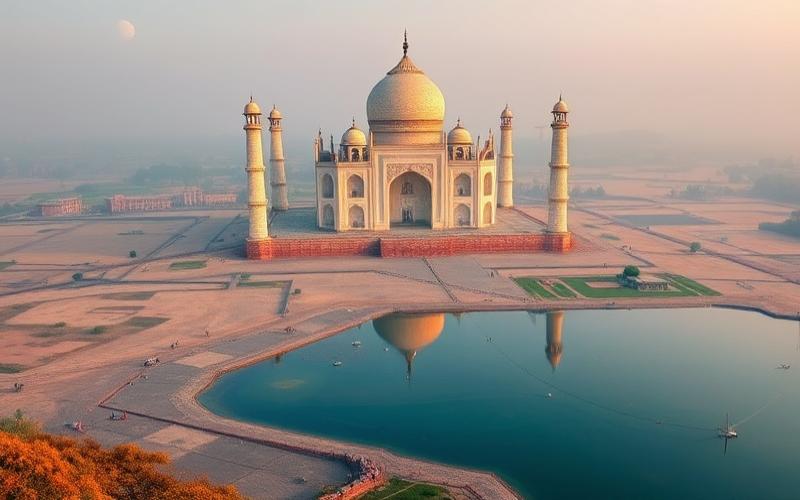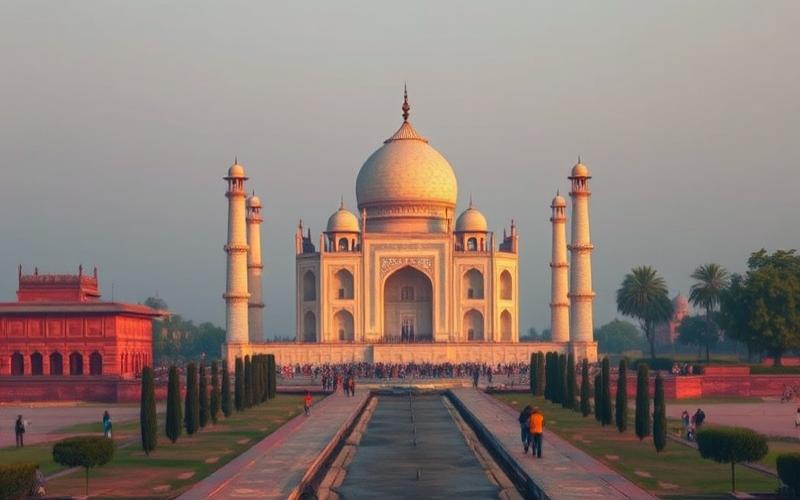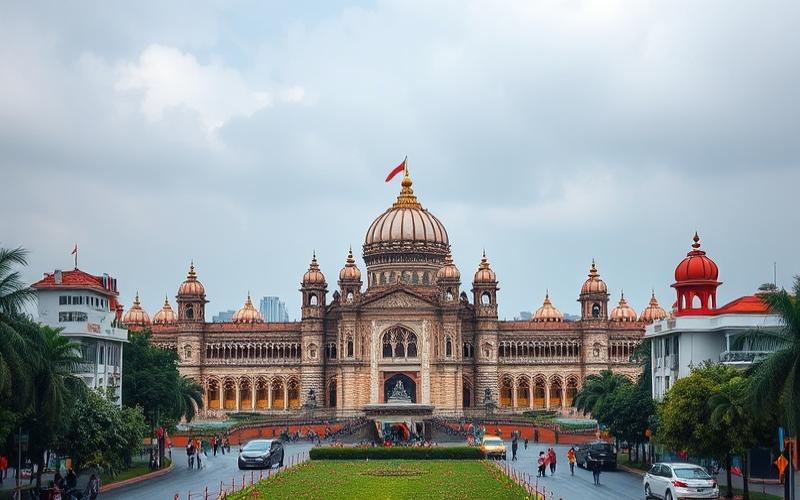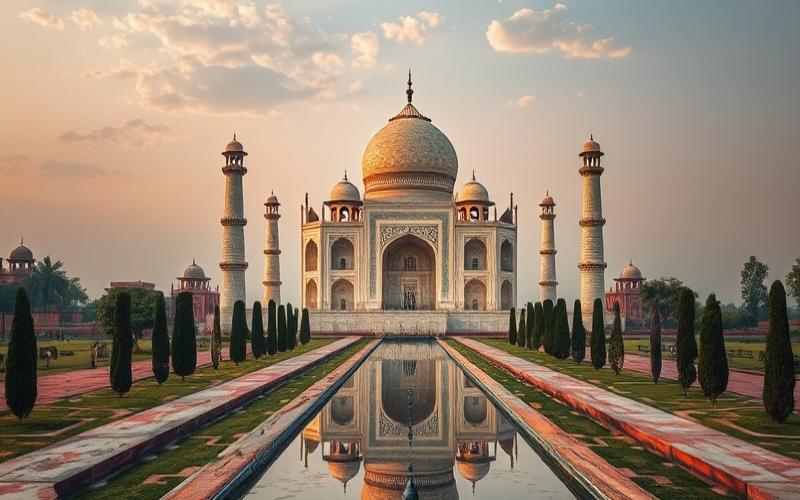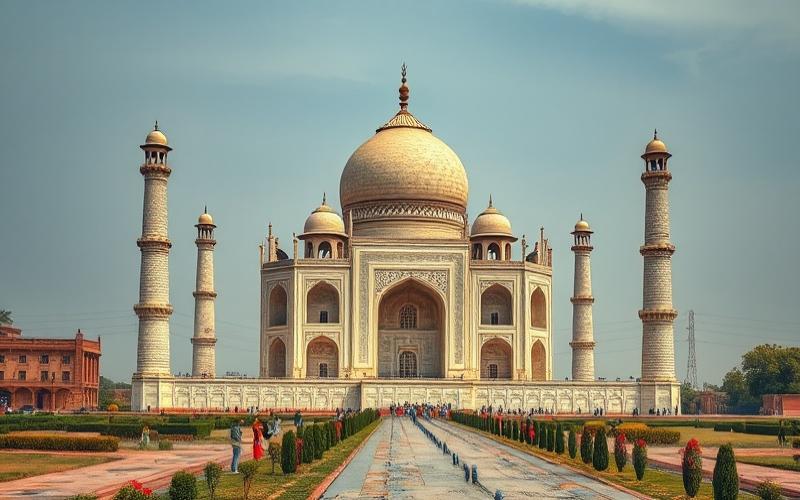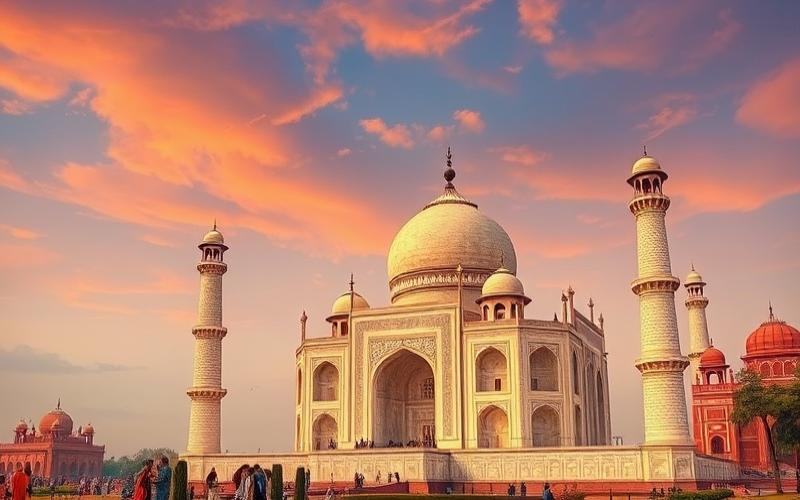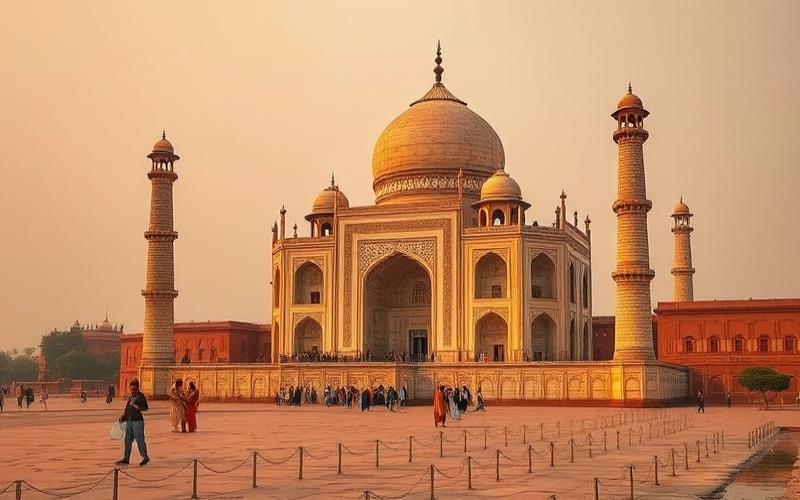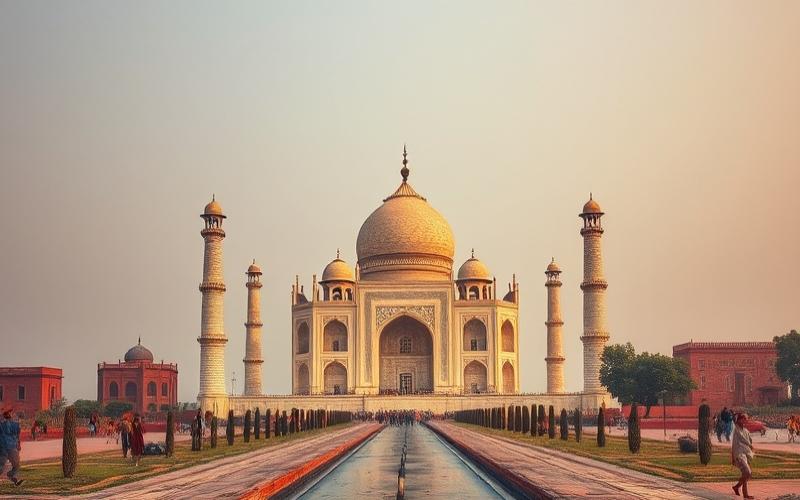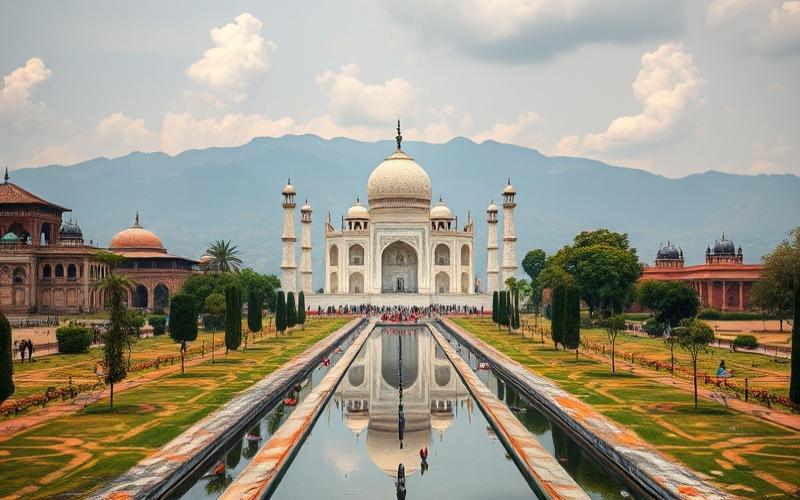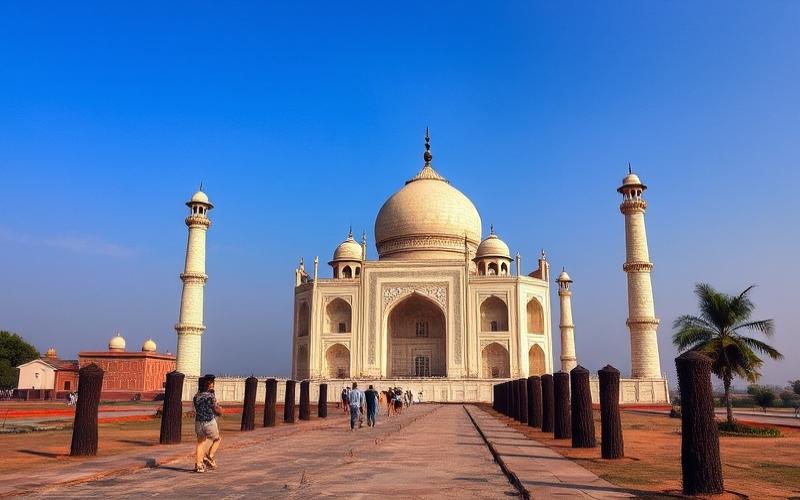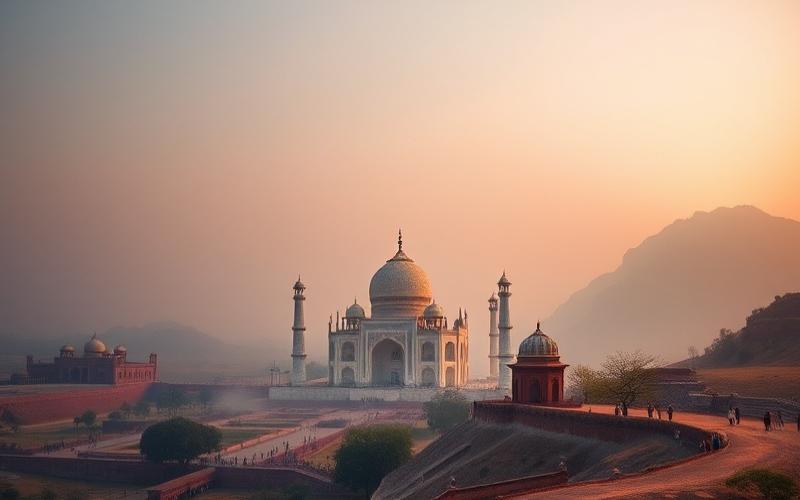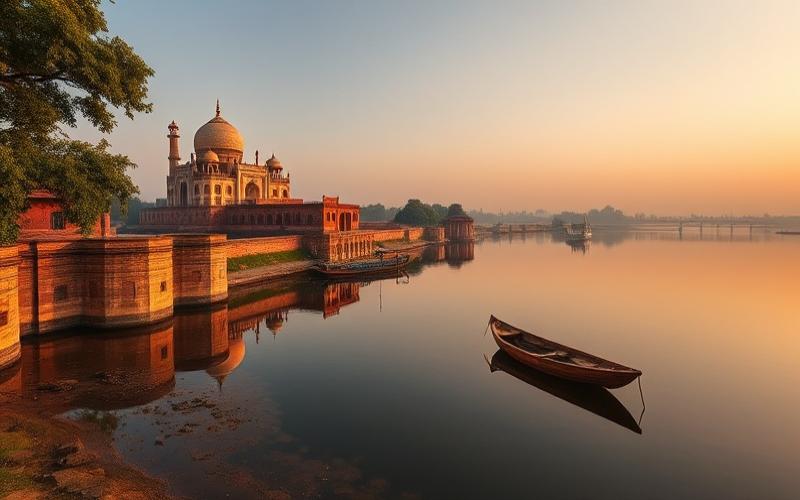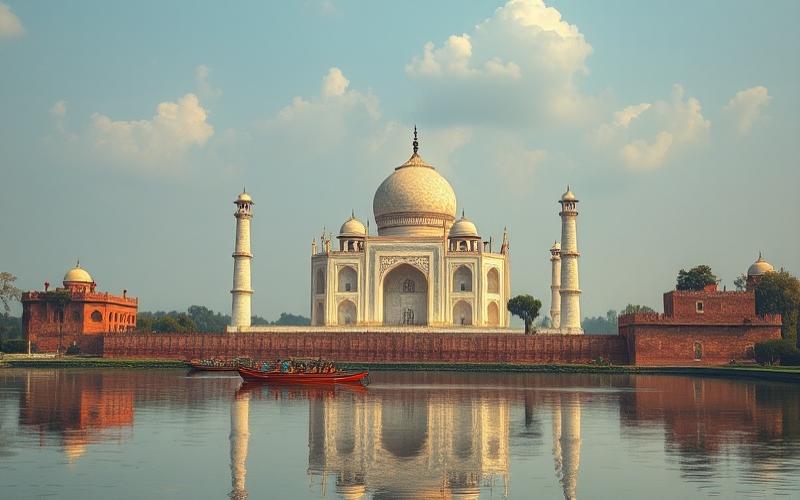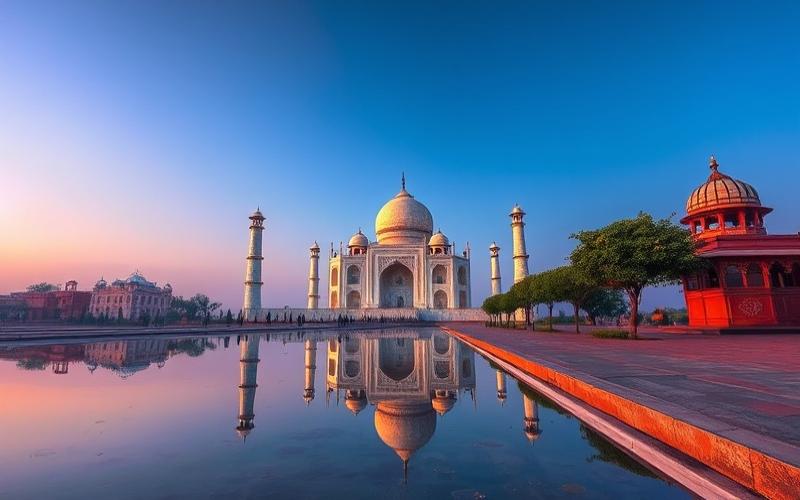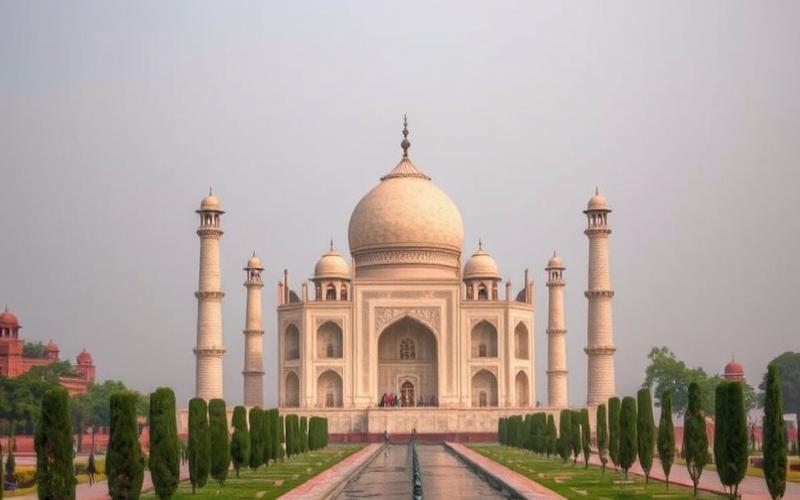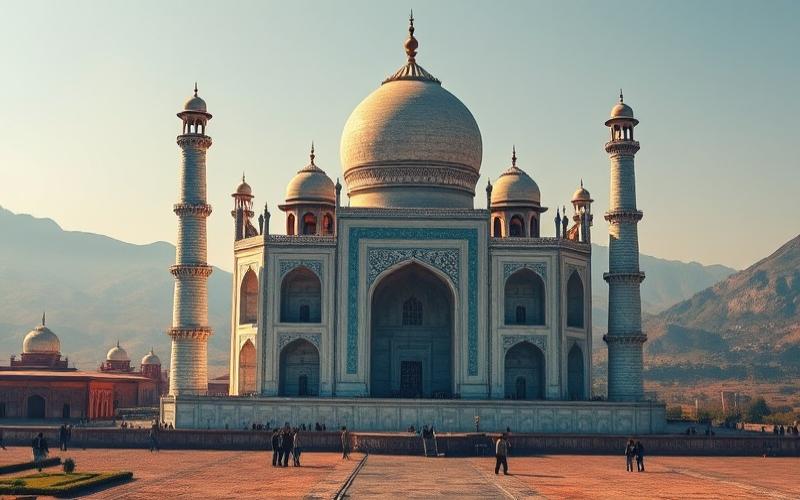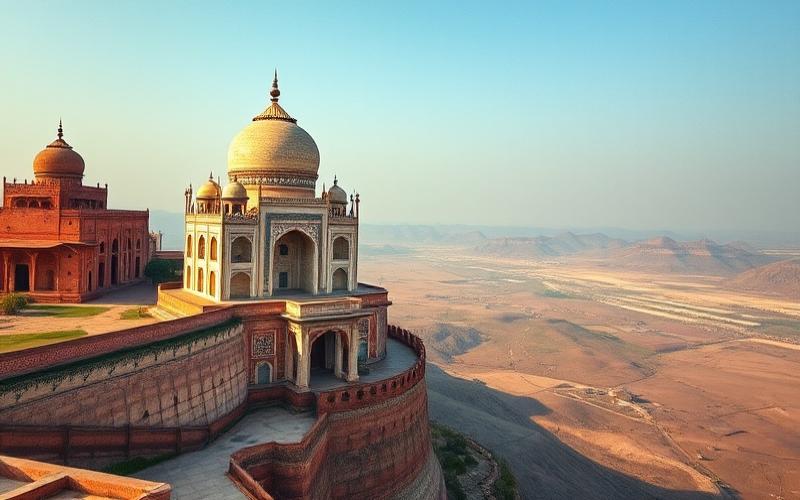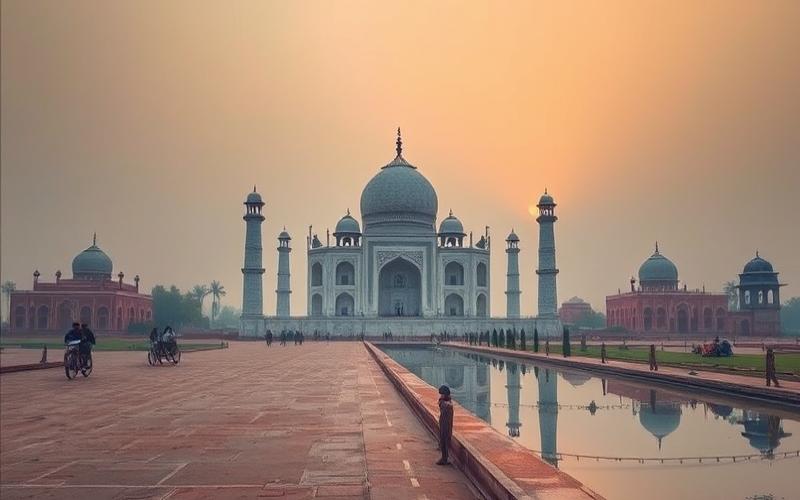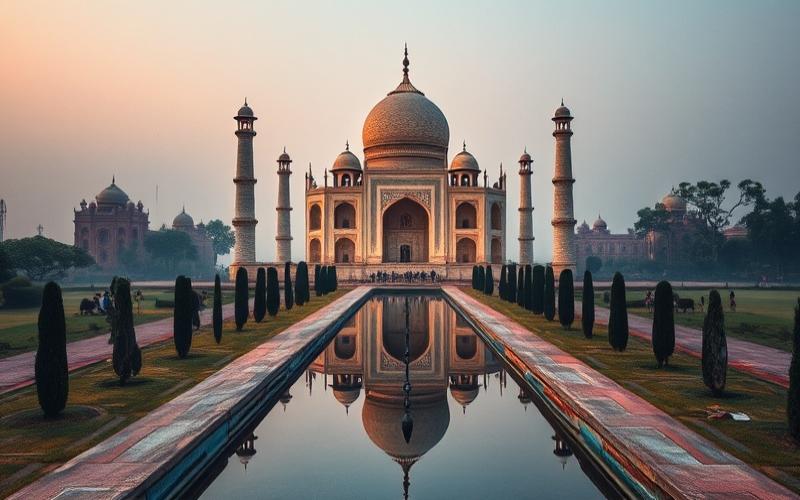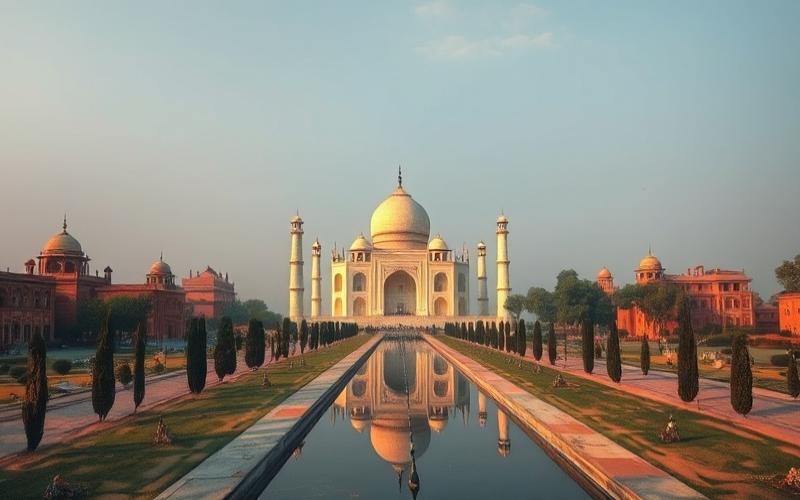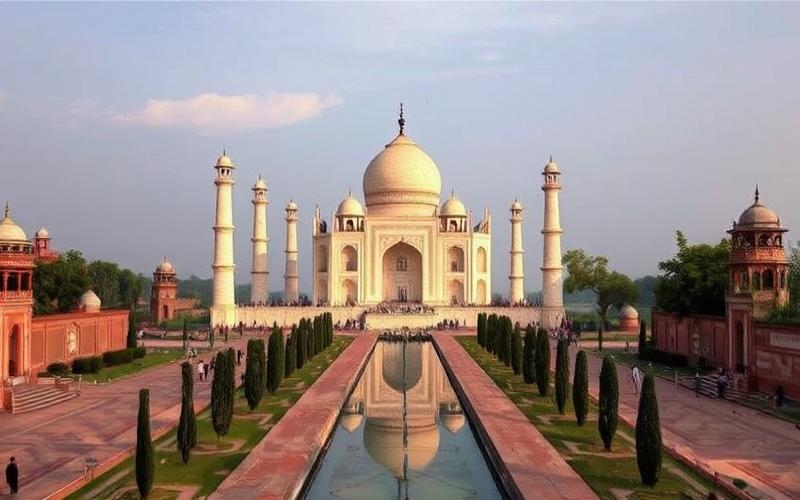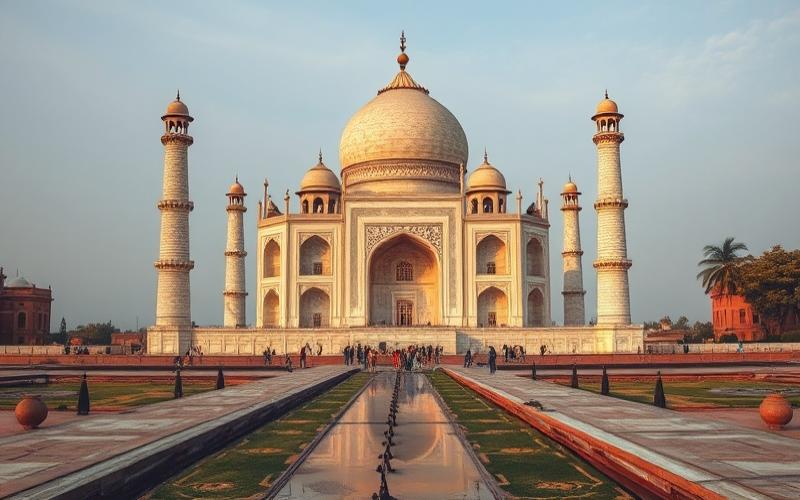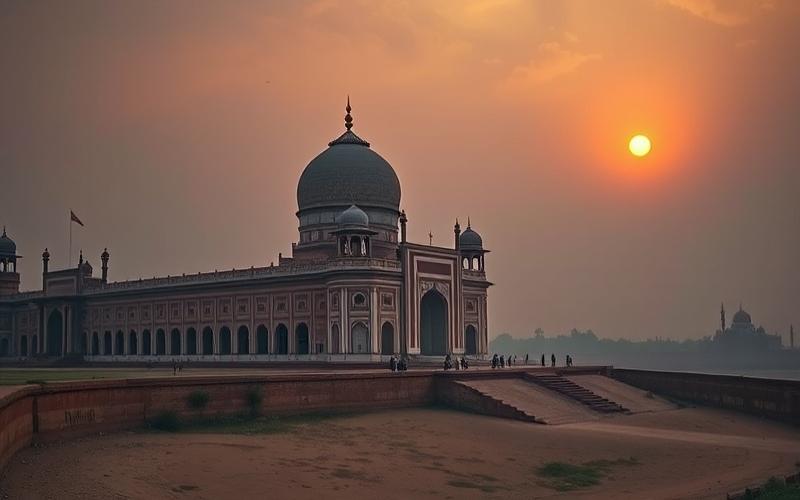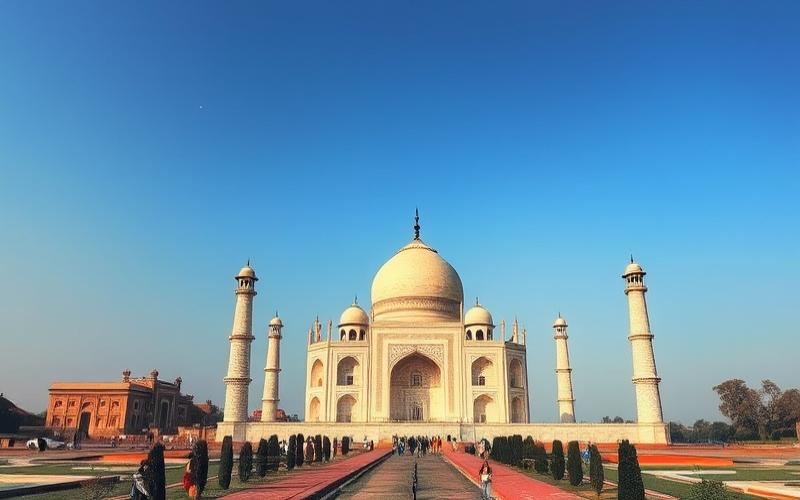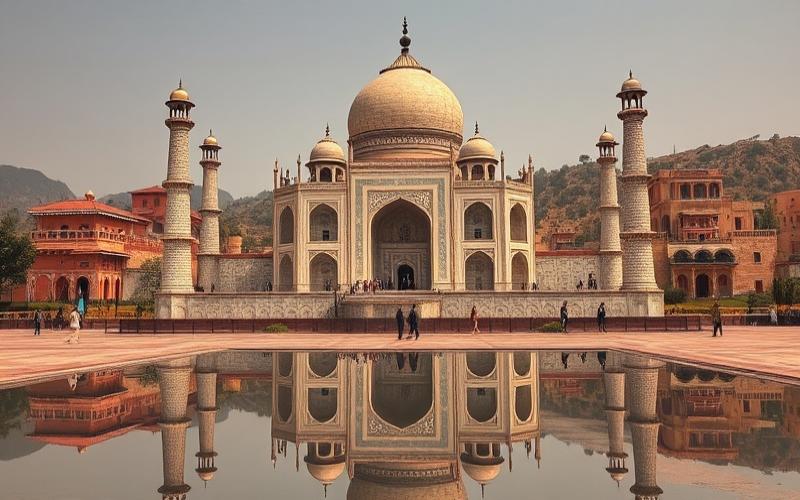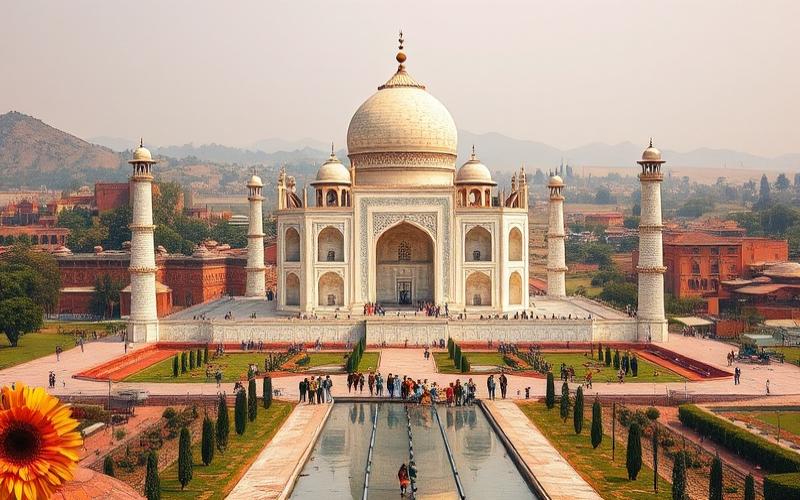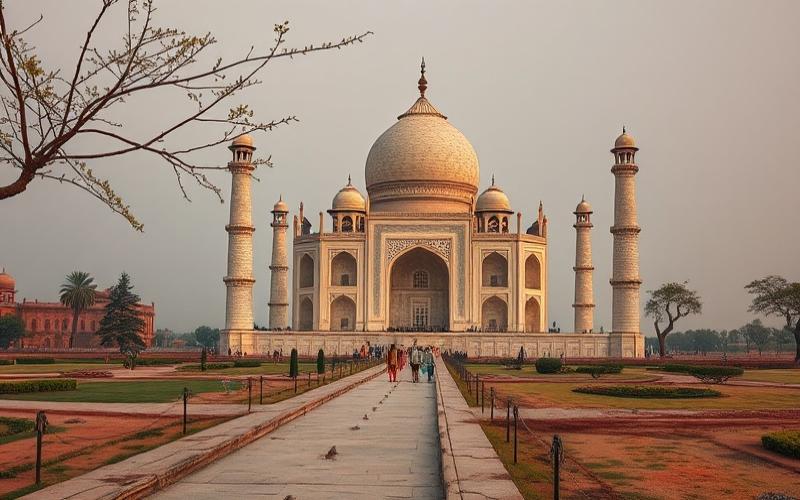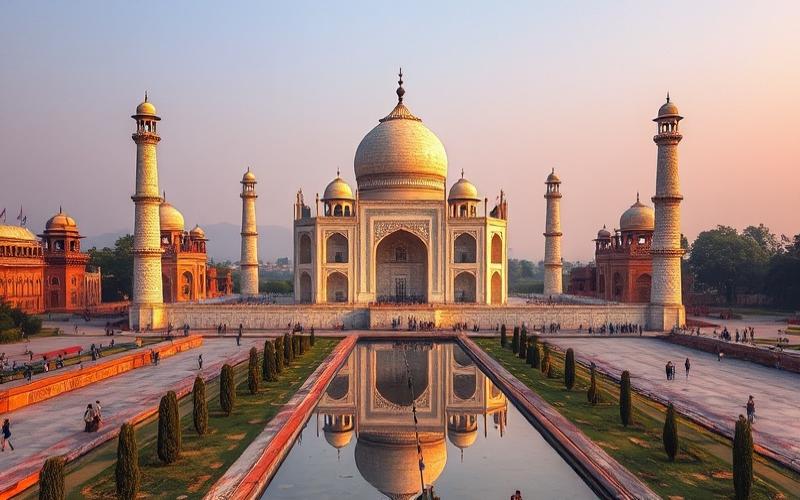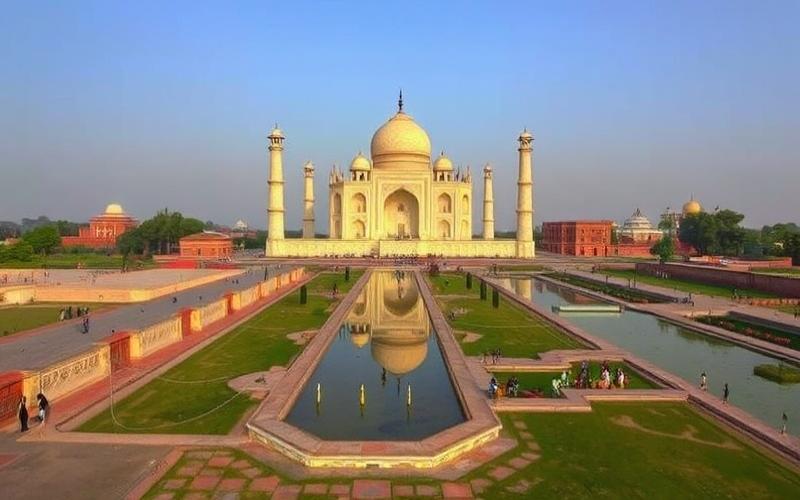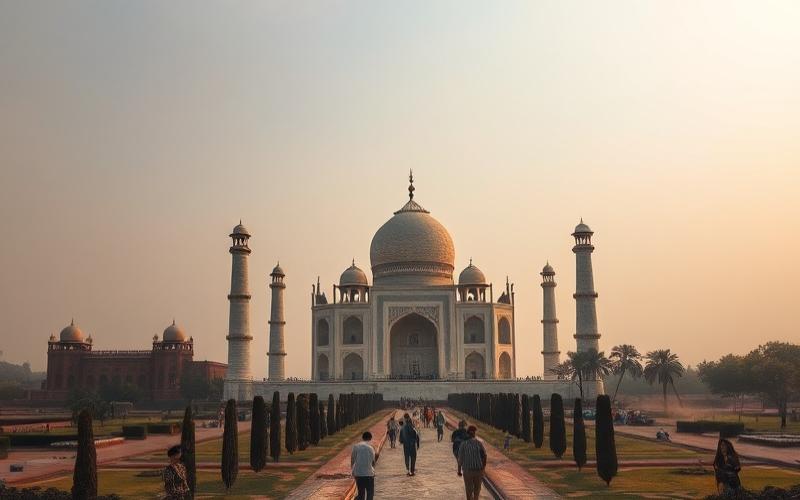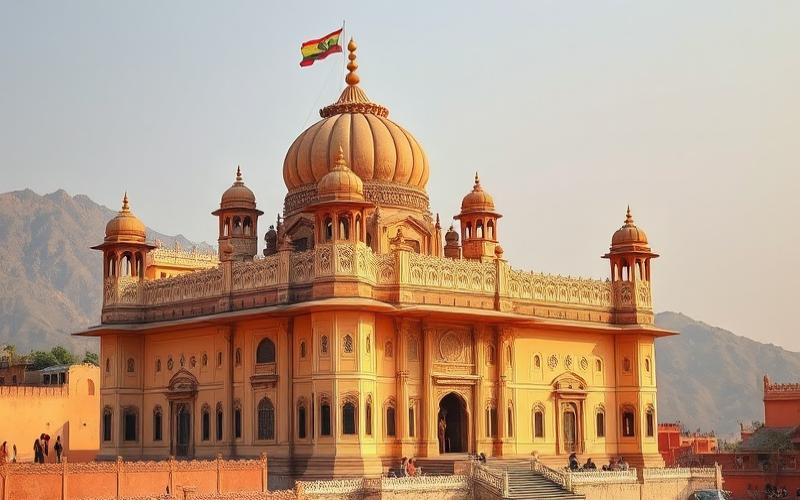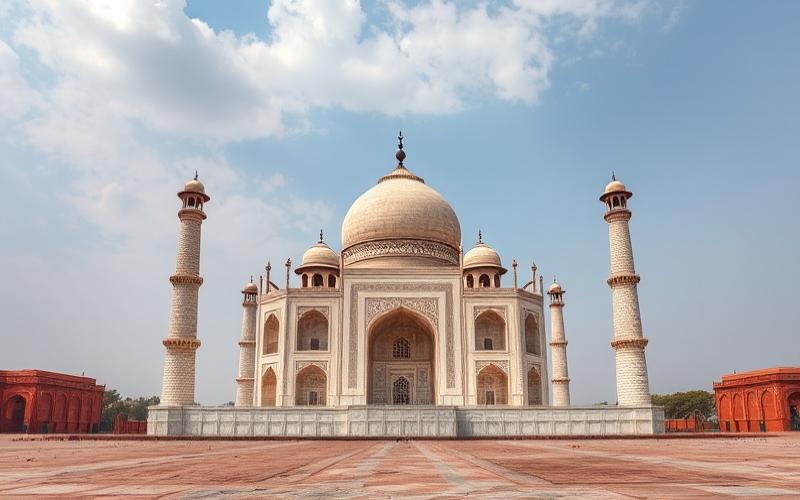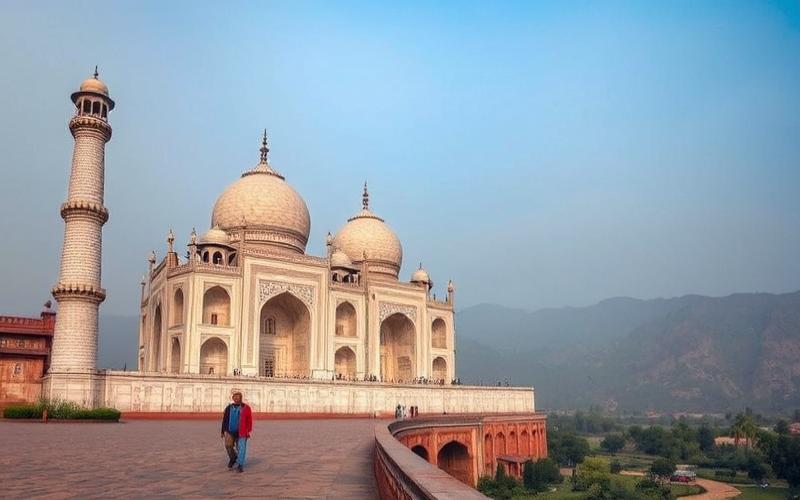
 Published on and written by Cyril Jarnias
Published on and written by Cyril Jarnias
India, with its cultural richness and rapidly expanding economy, is attracting a growing number of foreigners looking to settle there long-term. Obtaining permanent residency in this vast country isn’t just about filling out a few forms; it involves understanding and meeting the specific criteria established by Indian authorities to facilitate legal immigration.
These criteria can include aspects such as investment, employment, and family relationships, making the process both demanding and rewarding. Furthermore, the resulting benefits, such as unrestricted access to the job market, the ability to purchase real estate, and access to social services, make this pursuit even more attractive for those wishing to take advantage of the growth and opportunities present in India.
This article will guide you through the essential steps and concrete benefits associated with permanent resident status, with accurate and up-to-date information.
Requirements for Obtaining Permanent Residency in India
Types of Visas Eligible for Transition to Permanent Residency in India:
- Employment Visa: for skilled professionals recruited by Indian or international companies established in India.
- Spouse Visa: for foreigners married to an Indian citizen, subject to the duration and stability of the marriage.
- Investor Visa: for individuals making a substantial financial investment in the Indian economy under specific programs.
- Person of Indian Origin (PIO) or Overseas Citizen of India (OCI) Status: for persons of Indian origin or descendants of Indian citizens.
Legal Requirements for Obtaining Permanent Residency:
| Criterion | Detail |
|---|---|
| Minimum Stay Duration | Generally several years of continuous legal residence (varies by category). |
| Financial Stability | Proof of regular income or a significant financial investment according to the visa type. |
| Clean Criminal Record | Certificate of no criminal convictions in the country of origin and in India. |
| Economic/Social Contribution | Expected for investors (job creation, direct investment); for spouses: family integration and marriage stability. |
| Compliance with Local Laws | Strict adherence to Indian laws during the stay period. |
Essential Administrative Procedures:
- Submission of a complete application to Indian immigration authorities (FRRO/FRO or online).
- Provision of supporting documents: passport, previous visas, proof of residence, bank statements, employment certificates, marriage certificate, etc.
- Undergoing an interview or assessment if required.
- Payment of administrative fees.
- Biometric verification and fingerprinting.
- Obtaining a police certificate proving no criminal record.
Typical Application Processing Times:
Generally 6 to 18 months depending on the visa category, complexity of the application, and submission location.
Applications from investors or spouses of Indian citizens may benefit from expedited processing in some cases.
Specific Exemptions or Facilitations:
| Category | Exemptions / Facilitations |
|---|---|
| Investors | Expedited procedure, reduced investment threshold in certain strategic sectors. |
| Spouses of Indian Citizens | Marriage duration requirement (often minimum 2 years), administrative facilitations for transition. |
| Persons of Indian Origin | Facilitated access to OCI or PIO status, with expanded rights (except voting rights and public employment). |
Important Points (Legislative Update 2025):
- Rights conferred by permanent residency status in India do not include the right to vote or access to certain public positions.
- Investment criteria may be periodically adjusted by the government based on national economic needs.
- OCI/PIO status holders benefit from freedom of movement and simplified access to certain services (real estate, education).
Summary of Required Documents:
- Valid passport
- Proof of residence in India
- Financial justifications (bank statements, proof of investment)
- Police certificate (no criminal record)
- Employment or marriage certificates as per category
- Completed and signed official application form
Important Text
Permanent residency in India remains highly conditional on origin, investment, and family situation. The procedures are strictly regulated, and any application must be supported by solid and up-to-date evidence, in compliance with current Indian legislation.
Good to Know:
To obtain permanent residency in India, a foreigner must generally go through eligible visas, such as work or long-term visas, which can then be converted. It is crucial to reside in India for at least five to seven consecutive years and provide proof of financial stability like bank statements or income proof. A clean criminal record is a strict requirement, and applicants must demonstrate their economic or social contribution, for example by investing in the local economy. Administrative formalities include submitting specific forms and paying processing fees, with timelines that can vary from a few months to a year. Investors and spouses of Indian citizens often benefit from reduced timelines and simplified processes, while recent legislative revisions may offer additional facilitations for certain specific professional categories.
Specific Criteria for Expatriates in India
Visa Categories for Obtaining Permanent Residency in India
| Visa Type | Main Conditions | Duration/Access to Permanent Residency |
|---|---|---|
| Employment Visa | Job offer in India, employment contract, professional justifications, mandatory work permit | Valid for 1 year, renewable; basis for residency procedures |
| Business Visa Plus | Commercial activity, investment, company documents, proof of funds | Extended stay, possibility of progression to residency |
| Investor Visa | Substantial investment via FDI, proof of funds, job creation for 20 residents/year | Can lead to Permanent Resident Status (PRS) |
| Startup Visa | Creation of an innovative company, project validation by competent authorities | Extended stay, renewable, possible progression |
| Entry Visa | For spouses/children of work visa holders or Indian citizens | Valid according to the holder’s duration, renewable |
Legal and Administrative Requirements
- Possess a valid passport and the visa corresponding to the chosen category.
- Mandatorily register with the FRRO (Foreign Regional Registration Office) upon arrival, generally within 14 days.
- Provide ID photos, copies of passport and visa, proof of local residence, and pay registration fees.
- For investors, provide proof of investment, jobs created, and tax compliance documents (PAN, TRC, Form 10F…).
- Present a clean criminal record from the country of origin or an equivalent certificate.
- Demonstrate sufficient financial resources to support oneself during the stay.
- Comply with immigration and employment legislation (Immigration and Foreigners Act 2025), under penalty of severe sanctions.
Common Challenges and Practical Advice
- Administrative Complexity: Procedures are lengthy and documentation-heavy. It is advisable to prepare a complete file before departure and seek professional assistance.
- Processing Times: Timelines can be unpredictable, especially for investment and work visas. Allow for significant time margins.
- Visa Category Rigidity: It is impossible to change visa categories once in the country. Choose carefully from the initial application.
- Mandatory Registration: Forgetting to register with the FRRO can lead to fines or expulsion. Handle it immediately upon arrival.
- Strict Compliance with Conditions: Any overstay or non-compliance with visa conditions exposes one to imprisonment or high fines.
- Language and Administrative Culture: Language barriers and cultural differences can complicate understanding procedures; it is helpful to be assisted by local specialists.
Benefits of Permanent Residency for Expatriates
- Work Freedom: Ability to hold a job or manage a business without frequent visa renewal.
- Facilitated Access to Certain Services: Opening bank accounts, renting or purchasing real estate, access to certain public and private services.
- Legal Stability: Increased security of stay and associated rights (protection against arbitrary expulsion, tax stability).
- Quality of Life: Facilitated integration, access to a local professional and social network, possibility of children’s schooling in Indian or international institutions.
Key Points to Remember
The conditions are strict and differ according to the chosen visa.
Obtaining permanent residency in India is primarily based on investment, job creation, or skilled employment.
Meticulous preparation of the file and scrupulous adherence to administrative procedures are essential to avoid major obstacles.
Good to Know:
Expatriates wishing to obtain permanent residency in India can do so through various visas such as work, business, or investment visas, each requiring registration with local authorities and demonstration of sufficient income with no criminal record. The work visa usually requires a job offer validated by an Indian employer, while the investment visa requires a certain amount of capital injected into the local economy. Expatriates may face challenges, such as administrative complexity and lengthy bureaucratic procedures, but preparing in advance with all necessary documents and seeking help from local experts can greatly facilitate the process. Once permanent residency is obtained, expatriates benefit from increased work rights, expanded access to public services, and better integration, thereby improving quality of life and creating new economic and social opportunities.
Benefits of Permanent Residency in India
Benefits of Permanent Residency in India
| Domain | Benefits for Permanent Residents |
|---|---|
| Economic and Professional Opportunities | – Expanded access to the job market in various sectors (technology, industry, services, finance, health, etc.) – Possibility to create and manage one’s own business without major restriction – Freedom to choose one’s employer and change positions or sectors according to skills and ambitions |
| Taxation | – Access to incentive tax regimes for certain sectors (technology, innovation, export, etc.) – Possibility to benefit from exemptions or tax reductions depending on state of residence and investment profile – Often advantageous taxation for new residents, particularly for capital repatriation or direct investments |
| Public Services | – Right to access Indian public education, including prestigious universities and schools at local rates – Access to the public health system and quality care at moderate cost – Possibility to benefit from social security and pension programs according to local laws |
| Property Rights | – Right to acquire, own, and sell real estate anywhere in India – Freedom to invest in residential or commercial real estate, without need for a local partner – Protection of property rights by Indian legislation |
| Cultural and Social Life | – Total immersion in India’s cultural richness: festivals, gastronomy, arts, regional traditions – Access to a dynamic community life, with the possibility to participate in associations, clubs, local events – Discovery and integration into a pluralistic, multilingual, and open society |
| Regional and International Mobility | – Freedom to travel and reside in any state of the Indian Union without restriction – Possibility to travel more easily to certain neighboring countries thanks to bilateral agreements – Facilitation of administrative procedures for obtaining work or long-stay visas abroad (especially for business or studies) |
Summary of Main Advantages:
- Rapid professional integration thanks to access to the job market and entrepreneurship.
- Tax benefits tailored to investors and new arrivals.
- Priority access to essential public services (education, health, social security).
- Guaranteed property rights and freedom of real estate investment.
- Enriching cultural integration and active participation in Indian social life.
- High mobility within India and facilitation of international procedures.
Permanent residency in India thus offers an attractive framework to thrive professionally, secure one’s assets, and fully experience the country’s cultural and economic diversity.
Good to Know:
Becoming a permanent resident in India offers a multitude of benefits, such as access to a diverse job market with opportunities in key sectors like IT, health, and finance, as well as the possibility to undertake business while benefiting from certain tax deductions. Permanent residents enjoy improved public services, including easier access to education and healthcare, while having the right to purchase real estate in India. Culturally, living in India allows immersion in a rich and dynamic history, while actively participating in community life. In terms of mobility, permanent residency facilitates travel within the country and simplifies procedures for various neighboring countries.
Disclaimer: The information provided on this website is for informational purposes only and does not constitute financial, legal, or professional advice. We encourage you to consult qualified experts before making any investment, real estate, or expatriation decisions. Although we strive to maintain up-to-date and accurate information, we do not guarantee the completeness, accuracy, or timeliness of the proposed content. As investment and expatriation involve risks, we disclaim any liability for potential losses or damages arising from the use of this site. Your use of this site confirms your acceptance of these terms and your understanding of the associated risks.

